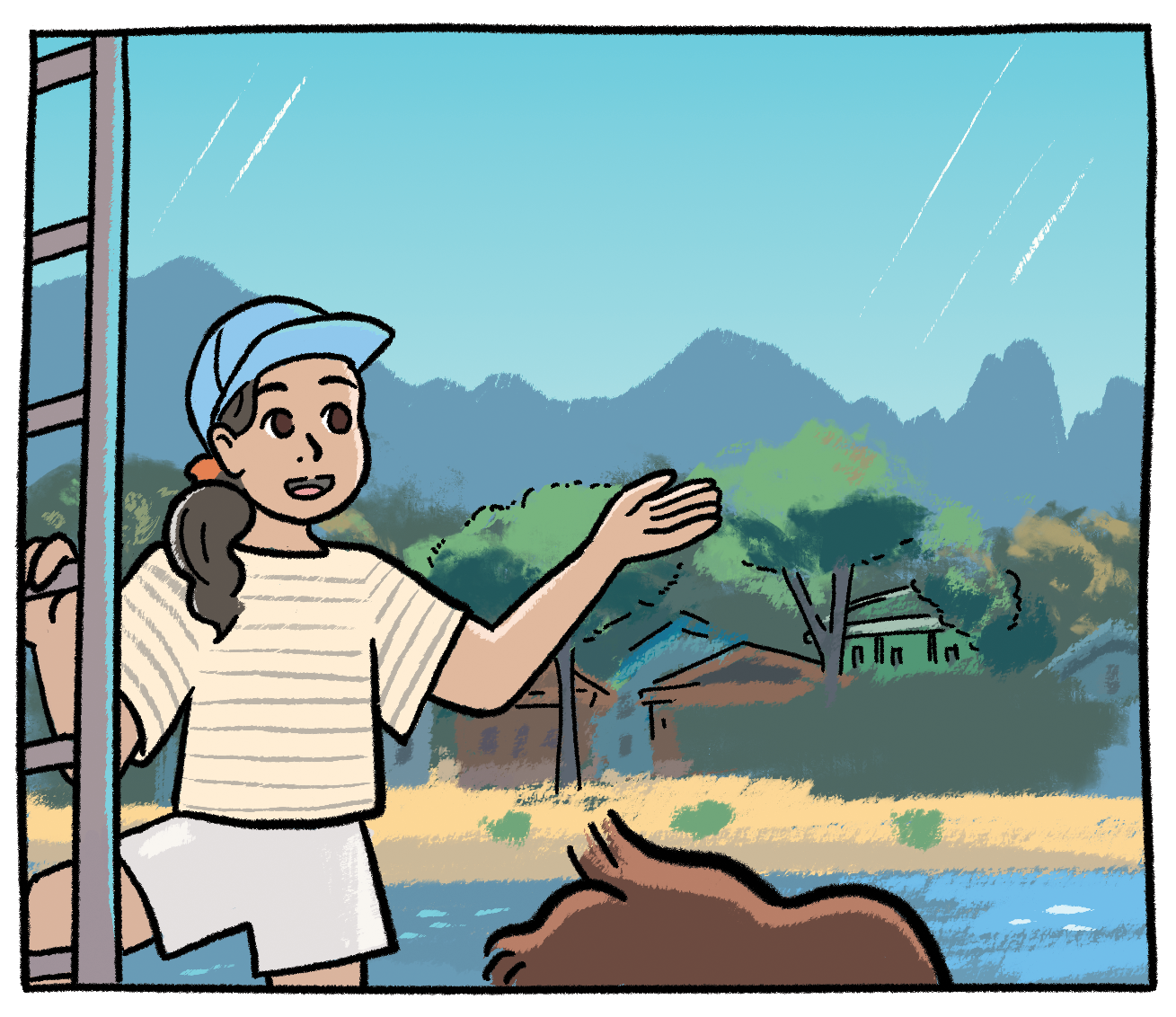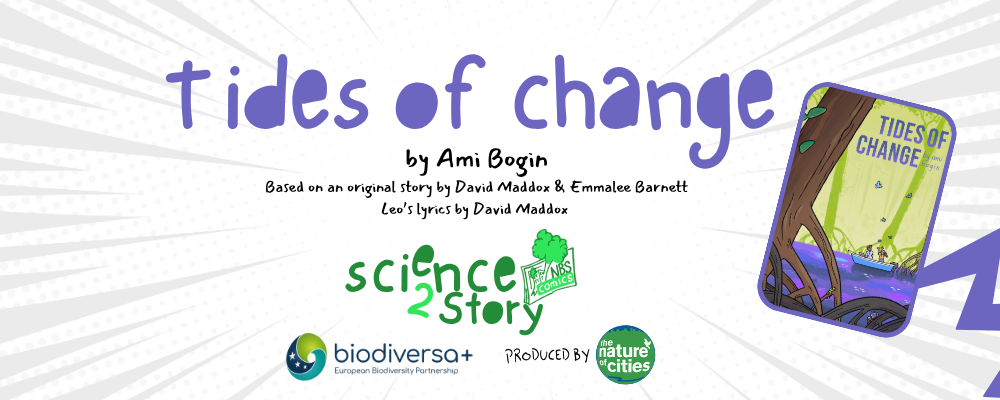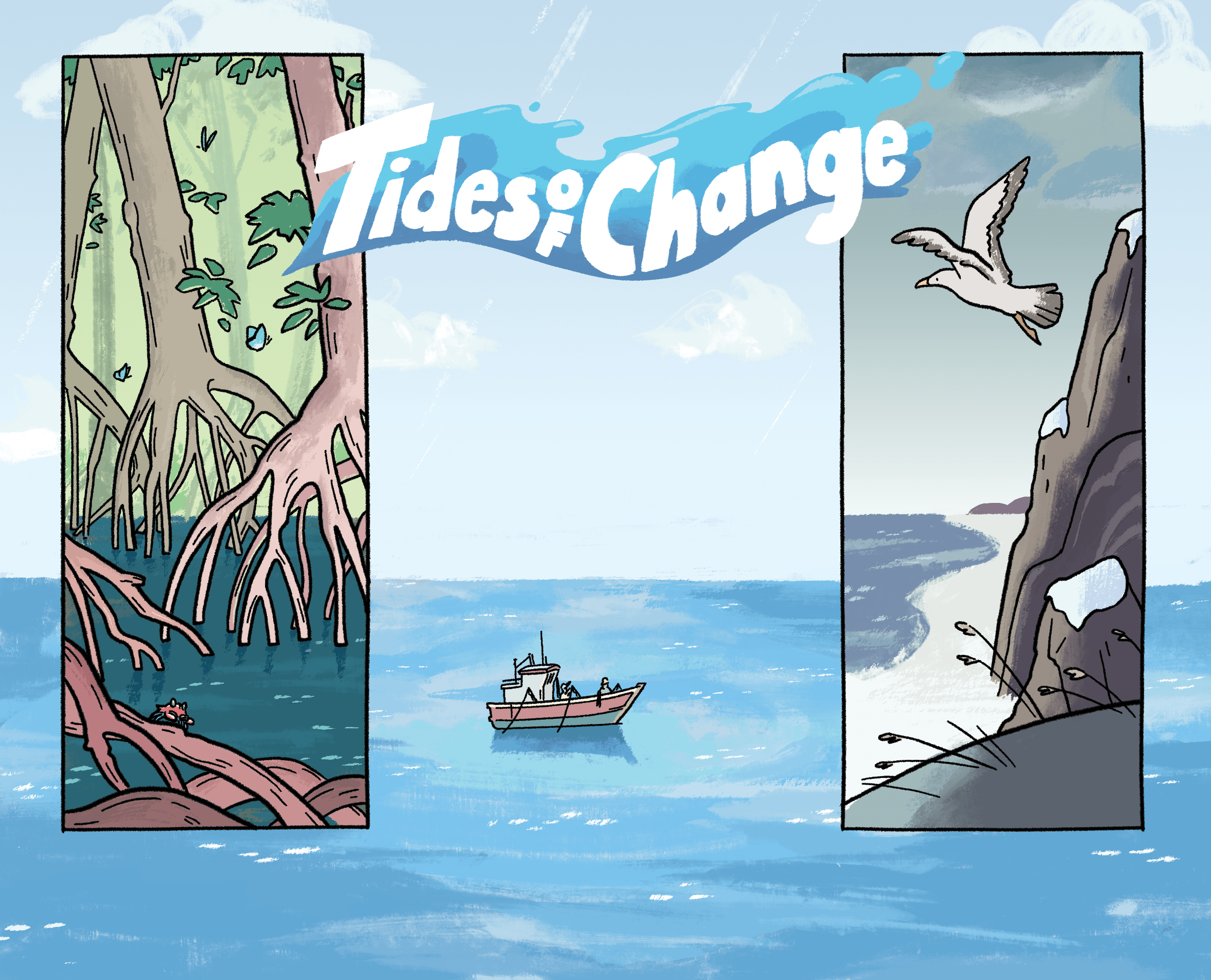As a result of ongoing climate change, the biophysical conditions of the world’s oceans are altered, leading to changes in marine biodiversity. While some marine species are able to adapt to the modified conditions, most fish species are predicted to shift their migration and distribution patterns. Such demographic dynamics influence species’ genomic architecture and persistence, resulting in declining biodiversity if novel environmental conditions and incoming genomic variants mismatch.
Read more about the project here
IN THE COMIC >
In Tides of Change, Mateo is using GenClim’s process to study the migration of fish species along the Costa Rican coast. Such migrations can be caused by a number of factors including warming of the waters, the introduction of invasive species, pollution, and more.

The GenClim project investigates such changes in fish populations and their genetic adaptation to the changed conditions in the Eastern Atlantic. Special attention is on the North Sea, the Iberian Coast, and the Benguela region as they experience faster rates of warming than the global average. GenClim includes genetic information in forecasting models of range shifts of three commercially exploited fishes: hakes (Merluccius merluccius and M. paradoxus) and anchovy (Engraulis encrasicolus). Thus, the reliability of forecasts and associated bio-economic models will be increased. Based on this modeling approach and by targeting multiple stakeholders, the project aims to develop recommendations for management strategies.




